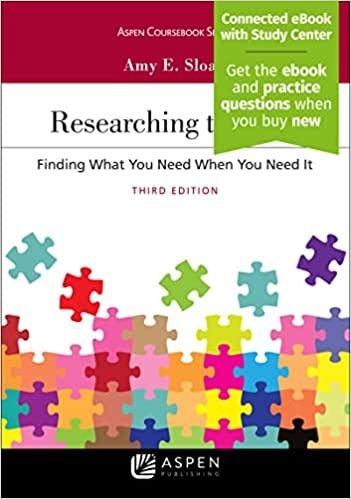PICK ONE OF THE 4 CASES WHICH YOU WOULD DEF WANT TO TAKE TO TRIAL and defend with all of your effort beca?
e en ee Role-Plays: You are a public defender and your job is to represent persons charged with crimes who cannot afford to hire their own attorney. You are assigned to a very high number of cases. Your salary does not change because of the number of clients you serve. You realize that plea bargaining is an extremely useful process for obtaining benefits for your clients that they may not receive if they go to trial. You also know and advise your clients that no plea bargain between you and the prosecutor is valid until the client has voluntarily and intelligently agreed to it after understanding the consequences. The clients, however, want to know your recommendation and generally, but not always, follow it. You know that the prosecutor has the authority to decide what criminal charges to bring against defendants, whether to even bring criminal cases against defendants, whether to dismiss criminal charges, whether to reduce a criminal charge to a lesser charge, and what recommendations to make to the judge to impose an exceptionally high amount of imprisonment or to impose a sentence in the standard range set by the state legislature. When there is more than one count or charge, each charge may receive a separate term of imprisonment. The prosecutor can recommend that these terms of imprisonment run at the same time or back-to-back. (For example, when two terms of three months' imprisonment are imposed by the judge. If they run together, the defendant serves three months in jail. If they run back-to-back, the defendant serves six months in jail.) Directions: In the cases that follow, you will approach the prosecutor to negotiate about the charge and/or the sentence. in each of the fact patterns below, the wishes of the client have been set out. However, the client may agree to some other proposal. In none of the cases does the client want to go to trial. Remember that you, as the public defender; need to give a rational argument to the prosecutor as to why the charges should be reduced or dismissed or sentencing recommendations be given. The prosecutor will not just grant a request to dismiss charges or makg a sgntgnmnhout a good reason for doing 50. Case One: Ward has been charged with first degree robbery. He was arrested for robbing a furniture store after an informant notified the police that Ward had told him that he had committed the robbery. Ward has no prior history of criminal activity. Defendant's wishes: The client wants the charge lowered to second degree robbery and a prosecution recommendation for six months imprisonment. Case Two: While being held for shoplifting at a Thriftway store by two store employees, Chester pulled a knife and stabbed both of them. The two employees had several stab wounds that were life~threatening and required surgery and several days in the hospital. Chester is charged with two counts of first degree assault. The knife has never been recovered as a piece of evidence. Defendant's wishes: The client wants the charges dropped to second degree assault and the imprisonment time to be served for both charges at the same time. He believes that without the knife the prosecutor will have a hard time proving firstdegree assault. Case Three: Watson committed at least five burglaries in January and February. She is charged with two counts of burglary in the first degree. The search of Watson's apartment turned up items that had been taken from the two burglaries. There is a possible question as to whether or not the search was done legally. Defendant's wishes: Watson wants the counts reduced to burglary in the second degree, an agreement that the prosecutor will not bring charges on the other three burglaries, and a recommendation that the times of imprisonment for each charge be served together. Case Four: David is charged with rape in the third degree by a woman who was a passenger in his taxi cab. David totally denies the charge, but there is very strong evidence against him. Defendant's wishes: David is willing to plead guilty to indecent liberties; although, he still claims he is innocent









